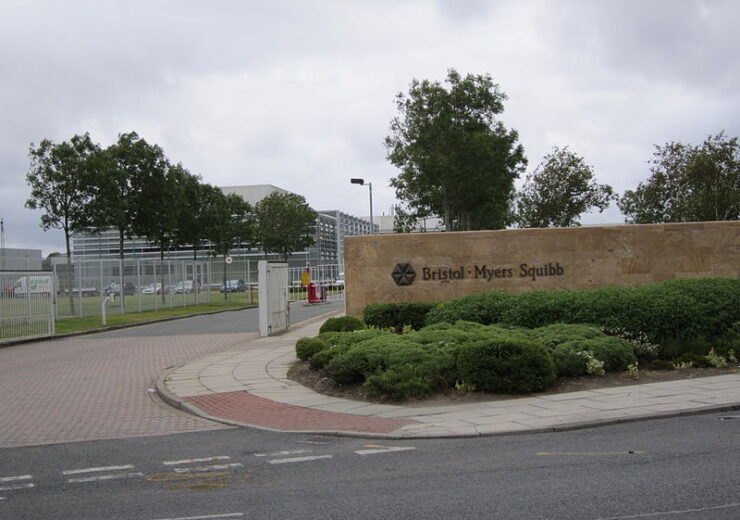Data from two projects under the collaboration will be used to help in the diagnosis of cancer and for advancing customised healthcare treatment options

Bristol Myers Squibb enters into a collaboration for digital pathology algorithms with Roche. (Credit: Rept0n1x/Wikipedia.org)
Roche and Bristol Myers Squibb (BMS) have entered into a collaboration under which the former will develop and deploy two new digital pathology algorithms to support the advancement of two assays for use in clinical trials.
The first project under the partnership will see Roche Digital Pathology build an artificial intelligence (AI) based image analysis algorithm. This will help pathologists in the interpretation of the on-market VENTANA PD-L1 (SP142) Assay.
Bristol Myers Squibb will use the image analysis algorithm to produce biomarker data from clinical trial samples.
Roche Digital Pathology is the pathology lab solutions business of Roche.
In the second project, Roche will make use of its Open Environment collaboration with PathAI for integrating an algorithm developed by the latter for CD8 biomarker analysis into the NAVIFY Digital Pathology workflow software.
The AI-powered algorithm will help Bristol Myers Squibb in analysing clinical trial samples which have been stained with the CD8 assay of Roche and produce quantitative spatial biomarker data.
According to Roche, data from the two projects will be used to help in the diagnosis of cancer and advance customised healthcare treatment options with an objective to enhance outcomes for patients.
Roche Diagnostics pathology customer area head Jill German said: “The Bristol Myers Squibb and PathAI collaborations are among the first examples where AI technology and digital pathology applications are playing a role in developing treatments for patients.
“By using our NAVIFY Digital platform to interpret tissue based assays and AI algorithms, pathologists are better able to identify targeted therapy options, ultimately improving patient care.”
Roche said that AI-based pathology imaging tools can aid in supporting clinical trials in investigating targeted therapy options.
Expanding access to the imaging tools via the Roche Digital Pathology Open Environment can possibly facilitate more precise diagnoses, enhanced clinical decision-making, and result in more personalised treatment strategies, said Roche.
Bristol Myers Squibb translational sciences and diagnostics vice president Sarah Hersey said: “We believe digital methods will bring significant improvements in standardisation and interpretation of tissue-based assays and will enable broader access to tissue based assays.
“The ability to more deeply interrogate images will present opportunities to better understand disease biology, potentially leading to expanded and improved drug development options and ultimately highly effective patient selection strategies.”


